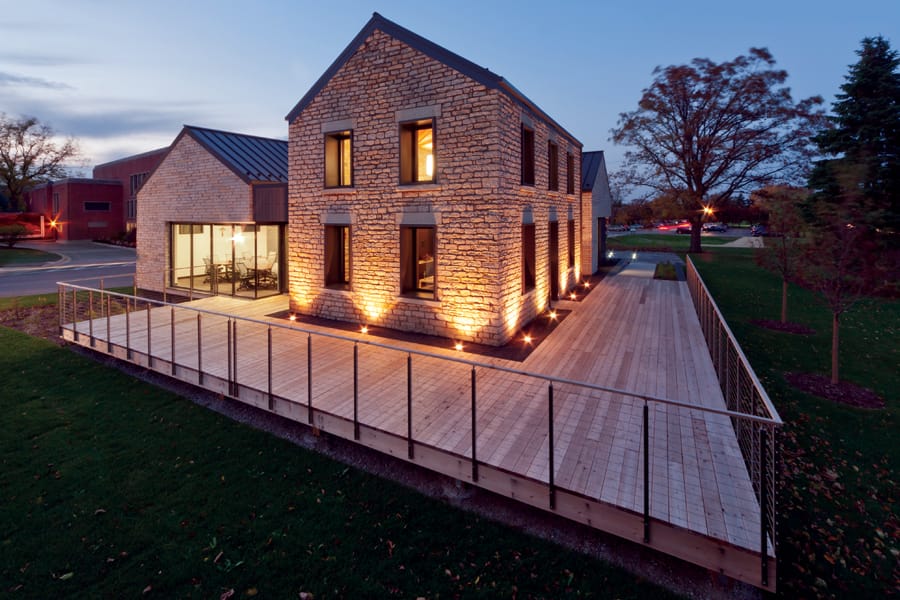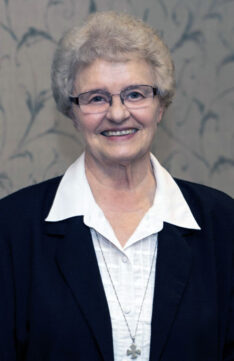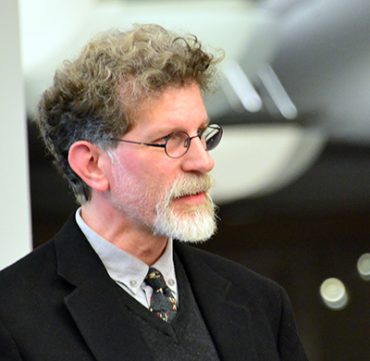
The Sister Judith Ann Heble, OSB Center for Benedictine Values

Ut in omnibus glorificetur Deus – That in all things God may be glorified.
Sister Judith Ann Heble, OSB (1942-2023) was a beloved leader in Benedictine life. A native of Nebraska, she studied at Sacred Heart Academy and Saint Procopius College (now Benedictine University) before launching her career as a teacher and administrator. She served as Prioress of Sacred Heart Monastery in Lisle, Illinois for eighteen years.
Sister Judith Ann earned degrees from the University of Saint Francis, Loyola University, and Catholic Theological Union. She gained international renown as President of the Conference of Benedictine Prioresses and Moderator of Communio Internationalis Benedictinarum. She knew Benedictines around the world and met three popes.
For nearly three decades, Sister Judith Ann served on Benedictine University’s Board of Trustees, chairing the Mission Integration Committee. Known for her generous wisdom and outstanding leadership, she remains a model of Benedictine values.
The Sister Judith Ann Heble, OSB Center for Benedictine Values Mission Statement
The Sister Judith Ann Heble, OSB Center for Benedictine Values serves the entire Benedictine University community, advances the mission of the University, and enhances the distinction of the University as a values-driven institution by:
- promoting awareness, appreciation, and affirmation of Benedictine values,
- fostering innovative and interdisciplinary study of Benedictine values,
- supporting and enacting vibrant application of Benedictine values in all areas of life and work.
Welcome to Benedictine University’s Sister Judith Ann Heble, OSB Center for Benedictine Values!
The Sister Judith Ann Heble, OSB Center for Benedictine Values is dedicated to the advancement of Benedictine University’s distinctive mission and the achievement of its bold vision. Our mission and vision are deeply rooted in our long and storied history and profoundly shaped by positive engagement with contemporary culture and the latest, most innovative, developments in Catholic higher education.
The Center provides mission-centered orientation and continuing education for the entire University community. We seek to foster awareness and appreciation of the Catholic intellectual tradition, Catholic social teaching, and the legacy of Benedictine wisdom. Annual signature events organized by the Center include the Visiting Scholar in Catholic Thought lectures every fall and the Benedictine Heritage Lecture and the Faith and Reason Symposium every spring.

On this site, you can read the core documents that shape our Catholic and Benedictine identity: Ex Corde Ecclesiae and our Mission and Vision Statements. In Education within the Benedictine Wisdom Tradition, from the Association of Benedictine Colleges and Universities, you can read about our core values, the Ten Hallmarks of Benedictine education: love, prayer, stability, conversatio (transformation), obedience, discipline, humility, stewardship, hospitality, and community.
The Neff family farmhouse, the location for the Center, was the original heart of the Lisle campus when Benedictine monks from Saint Procopius Abbey moved from Chicago to DuPage County over 100 years ago. Today, the iconic stone structure is an enduring symbol of our commitment to inspiring values stretching back nearly fifteen centuries to Saint Benedict, one of the most important figures in world spirituality.
Pope John Paul II spoke eloquently about the Catholic university as “born from the heart of the Church.” From that heart spring values of justice, respect for persons, and the quest for truth that resonate richly with the highest ideals of all religions and cultures.
At Benedictine, we welcome people of all cultures, all racial and ethnic identities, all genders, and all faiths and no faith. All are cherished partners in the evolving project called Benedictine University.
We invite you to join with the Sister Judith Ann Heble, OSB Center for Benedictine Values as we contribute to the inauguration of the next exciting chapter in Benedictine University’s great mission-driven story.
Education within the Benedictine Wisdom Tradition
From the earliest years of Christianity the disciples of Jesus faced the challenge of how to live faithfully and with integrity in the world in which they found themselves. READ MORE About the Education within the Benedictine Wisdom Tradition >>>
Constitution on Catholic Universities by Pope St. John Paul II
BORN FROM THE HEART of the Church, a Catholic University is located in that course of tradition which may be traced back to the very origin of the University as an institution. READ MORE About the Constitution on Catholic Universities by Pope St. John Paul II >>>
University Mission Statement
Benedictine University is an inclusive academic community dedicated to teaching and learning, scholarship and service, truth and justice, as inspired by the Catholic intellectual tradition, the social teaching of the Church, and the principles of wisdom in the Rule of St. Benedict.
University Vision Statement
Benedictine University aspires to be a thought leader in Catholic higher education. We seek to provide a transformative and integrative educational experience grounded in Benedictine values, helping students shape lives of meaning and purpose as engaged citizens who care for the Earth, welcome people of diverse faiths and cultures, and promote the common good.
Our Commitment to Hospitality
“How many problems in life could be resolved if we would learn to listen, if we would learn to listen to each other.”
~ Pope Francis
Resources
Benedictine Resources
- American Benedictine Academy
- American Benedictine Review
- Association of Benedictine Colleges and Universities
- Friends of St. Benedict
- International Benedictine Web Portal
- Monastic Interreligious Dialogue
Catholic Higher Education Resources
- Association of Catholic Colleges and Universities
- Collegium: A Colloquy on Faith and Intellectual Life
- United States Conference of Catholic Bishops
